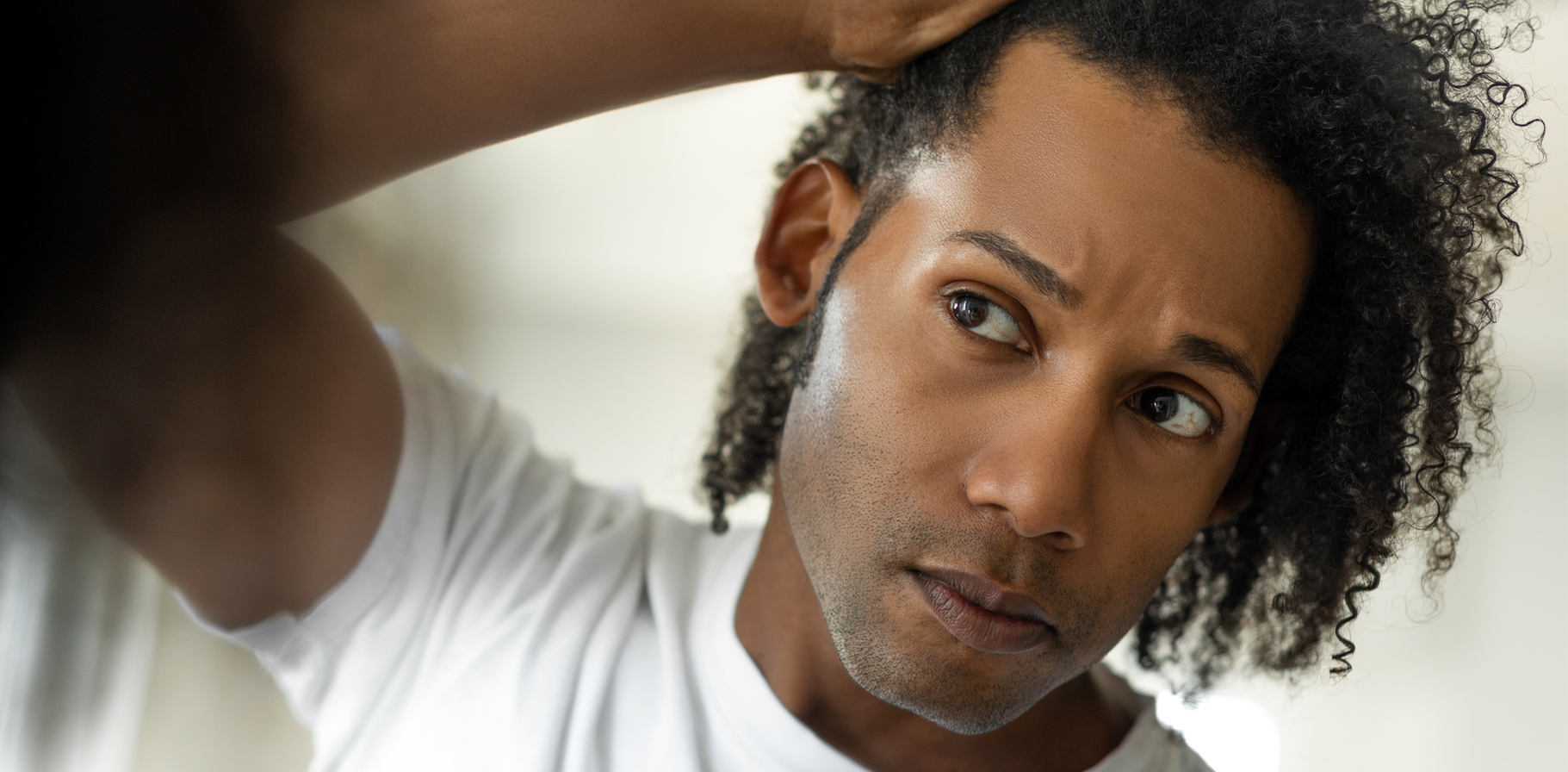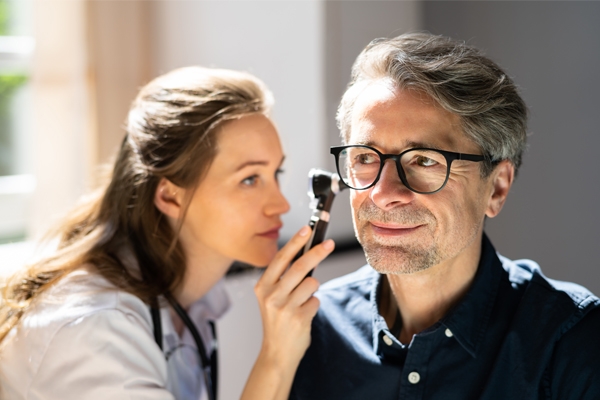Learn What Exactly Causes Swollen Earlobes

Learn What Exactly Causes Swollen Earlobes
10 min
Published September 17, 2024
What Exactly Causes Swollen Earlobes?
Swollen earlobes can turn what should be an ordinary day into a struggle. Imagine waking up to find your earlobes red, tender, and larger than usual. It's not just discomforting – it can interfere with your daily routine and even your choice of accessories. Many things can lead to this swelling, from an allergic reaction to a pair of earrings you just wore to a minor injury you might not have noticed.
Inflamed earlobes might push your patience, but there is good news. Treating this condition is usually straightforward with home remedies or over-the-counter options that prove effective for most people. And though the swelling is far from a pleasant experience, it's often temporary. If symptoms persist or worsen, reaching out to your healthcare provider or an ear specialist is a smart move to ensure proper care and peace of mind.
Common Reasons for Earlobe Swelling
Swollen earlobes can sometimes surprise us and appear out of nowhere. Knowing the causes helps us avoid them in the future and keep our ears healthy. Here are the most commonly known causes:
Abscess – An abscess may develop on your earlobe as a bump filled with pus, usually due to a bacterial infection. This condition signals that your body is fighting the infection, resulting in inflammation and, unfortunately, more swelling. It's important not to ignore an abscess, as it can lead to increased discomfort and symptoms like fever and chills.
Bug Bite – Sometimes, a simple insect bite can make your earlobes swell up. Although most bug bites are harmless and go away on their own, they can cause itching and swelling in the meantime. Over-the-counter treatments are usually effective in reducing these symptoms.
Ear Piercing – Getting your ears pierced is a common cause of swollen earlobes. While a bit of soreness and swelling is expected after a piercing, it should get better within a few days. If it doesn't, or if things worsen, you might have an infection, or your body might not be taking well to the piercing. Cleaning your piercings as advised can help you keep away from infections.
Injury or Trauma – It's easy to underestimate how something as simple as a tight earring can lead to swelling in your earlobes. Any form of trauma or injury, no matter how minor, can trigger symptoms like swelling, pain, and tenderness in the area around your earlobes.
Nickel Allergy – A very common allergy that can cause your earlobes to swell is a reaction to nickel, often found in jewelry. If you're allergic to nickel, you might notice itching, redness, and a rash where the metal touches your skin. For some, this reaction can be more severe, spreading beyond the contact area.
Outer Ear Infection – Also known as swimmer's ear, this affects the canal stretching from your outer ear to your eardrum. It's most common in children and avid swimmers, causing redness, pain, and swelling. If severe, it can even lead to fever and swollen neck lymph nodes.
Cellulitis – A serious bacterial skin infection, cellulitis can cause your earlobes to become red, swollen, and painful. This condition requires immediate medical attention to prevent it from spreading further, possibly leading to life-threatening situations.
Hematoma Auris – More commonly known as cauliflower ear, hematoma auris appears when your ear gets a blow or repeated hits, leading to blood collecting in the outer ear. This condition is especially common among people who engage in contact sports. It comes with swelling, pain, and sometimes, a bruised appearance.
Mastoiditis – This is an infection that can occur behind the ear, and it usually follows a middle ear infection. Recognizing symptoms quickly is crucial because, despite being treatable with antibiotics, ignoring them can lead to serious complications.
At-Home Methods for Treating Swollen Earlobes
When your earlobes swell up, feeling better fast is your top priority. A cold compress can work wonders by reducing swelling and offering quick relief. Sometimes, if you suspect a cyst is causing the trouble, switching to a warm compress might be more effective.
For those moments when discomfort becomes too much, reaching for over-the-counter pain relief could be a helpful option. It's crucial to remember that bacterial infections need a bit more care involving antibiotics prescribed by a healthcare professional. In cases of insect bites, antihistamines, and hydrocortisone creams are your go-to remedies for easing the itch and swelling.
Most swollen earlobe issues are manageable at home. Yet, for more severe symptoms like fever or discharge, seeking prompt medical attention from a doctor or audiologist is essential. And remember, if an abscess or cyst is part of the problem, an ear doctor may need to step in to resolve it effectively.
Tips to Keep Your Earlobes Happy and Swell-Free
Maintaining healthy ears involves regular care and some preventive measures to avoid common irritants and conditions that lead to swelling. Here are some practical tips to keep your earlobes from swelling:
Protect your ears from injuries by being careful with activities that could harm them.
Clean your pierced ears as instructed to keep them safe from infections. (/blog/hearing-loss/adult-ear-infection-hearing-loss)
Wear helmets or earguards when playing sports to avoid trauma to your ears.
Choose earrings that don't contain nickel, especially if you know you're allergic to it.
Keep insect bites clean and avoid scratching them to prevent swelling.
Look out for early signs of bacterial infections and get treatment quickly.
Clean the outside (/cleaning-your-ears) of your ears gently with a damp washcloth to maintain hygiene without causing irritation.
Know When to Seek Medical Attention
Swollen earlobes might seem like a small problem, but sometimes they need a hearing doctor’s attention. If your earlobes are still sore after trying home care for a few days, or if the pain and swelling get worse, it’s time to see a doctor. This is especially true if you think you might have a serious infection.
Whether it’s something simple or you need a prescription, your doctor can guide you on what to do next. If you’re concerned about your swollen earlobes, do not hesitate to speak with a healthcare professional. Keeping up on regular check-ups at a hearing center can also help spot any issues early on and prevent them from becoming bigger problems later.
Remember to always listen to your body and address any concerns promptly. With proper care and attention, we can keep our ears in top shape, allowing us to fully enjoy our daily activities and accessorize as we please. Take action today and find a clinic near you!




